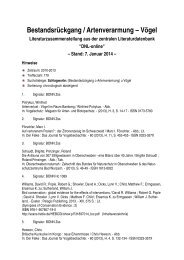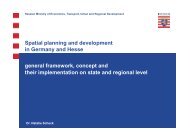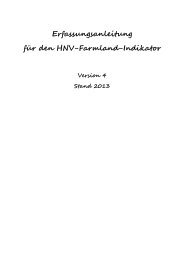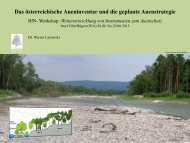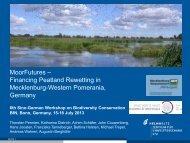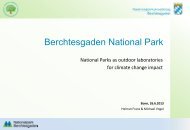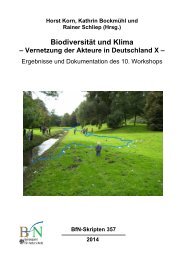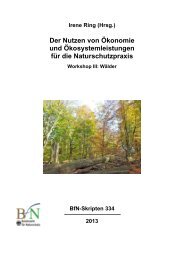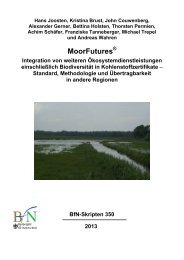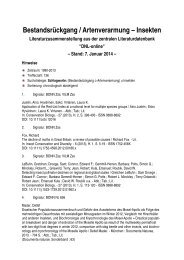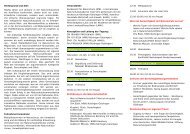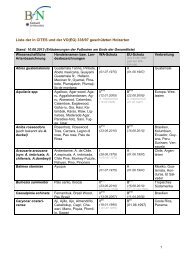Caring for Pollinators - Bundesamt für Naturschutz
Caring for Pollinators - Bundesamt für Naturschutz
Caring for Pollinators - Bundesamt für Naturschutz
You also want an ePaper? Increase the reach of your titles
YUMPU automatically turns print PDFs into web optimized ePapers that Google loves.
Gross, Newstrom-Lloyd, Howlett, Donovan The Oceania Pollinator Initiative<br />
3.6 Monitoring <strong>Pollinators</strong>: Case studies from Australia and New<br />
Zealand<br />
by CL Gross, New England; LE Newstrom-Lloyd, B Howlett, New Zealand; G Plunkett, New<br />
England and BJ Donovan, New Zealand<br />
Pollination is an essential ecosystem service — yet in Australia, New Guinea, New Zealand<br />
and on the Oceanic Islands- we know very little about our pollinators. Monitoring is a key<br />
step here as it provides data on longer term trends and the in<strong>for</strong>mation we lack on the<br />
distribution and ecology of pollinators and their ecosystem service-role. In addition the<br />
relative contributions of introduced and native pollinators in natural and agro-ecosystems is<br />
poorly understood from an economic perspective.<br />
To establish baselines <strong>for</strong> monitoring trends in pollinator services in Oceania, we have<br />
adopted diverse methods depending on the type of plant-pollinator interaction and the<br />
purpose of the investigation. Monitoring is undertaken <strong>for</strong> a variety of reasons, e.g. to detect<br />
change in pollinator communities in fragmented landscapes, to gauge the impact of exotic<br />
pollinators on native and exotic plant species, or to determine the contribution of alternative<br />
native pollinators in crops. Pollination systems in Oceania depend on the pollinating fauna<br />
available which is of very low diversity on most of the small remote islands (e.g., New<br />
Zealand) but higher in diversity in large continental sized islands (e.g., Australia).<br />
In island systems, exotic naturalized insects and plants are significant components of many<br />
habitats. Exotics may have positive or negative effects on native pollination systems<br />
(Newstrom and Robertson 2005). In some cases, it is clear that only exotic pollinators (e.g.,<br />
bumblebees or honeybees) are capable of pollinating exotic plants. This type of interaction is<br />
called an “invasive mutualism” because without the exotic pollinator the exotic plant would<br />
not set seed and spread (e.g., broom, Simpson et al. 2005). In other cases, exotic<br />
pollinators may benefit native flora because they replace lost pollinators (e.g. birds on the<br />
mainland of New Zealand). Similarly, exotic plants rich in floral resources may benefit native<br />
pollinator populations but this could lead to abandonment of native plants leaving them<br />
bereft of pollinators.<br />
86




